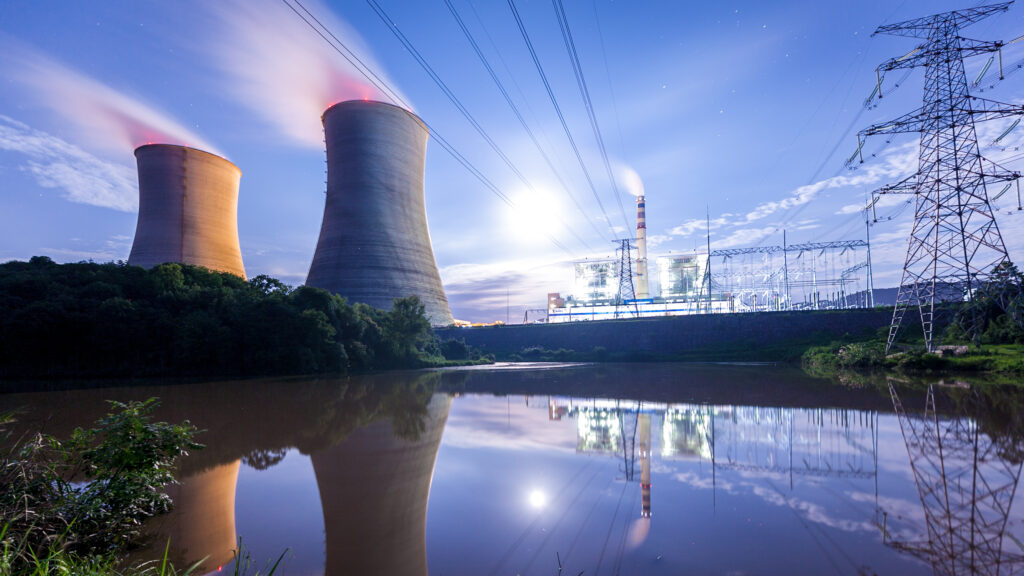[ad_1]
Last quarter, Coatue Management upped its stake in Constellation Energy by more than 57%.
By now, I’m sure you’ve realized that artificial intelligence (AI) is the next megatrend.
What you may not fully grasp, however, is that not all AI opportunities reside in the technology industry. Take the energy sector as an example. So far in 2024, that sector has returned 12.5% — pretty solid although it admittedly pales in comparison to the tech sector’s 35% year-to-date return.
While the energy sector as a whole may not be as lucrative as the technology industry, consider that uranium stocks have returned roughly 36% year to date — nearly identical to the tech industry’s result. What gives? Well, believe it or not, nuclear power has some pretty lucrative opportunities related to AI.
During the third quarter, Philippe Laffont’s hedge fund, Coatue Management, amped up its stake in nuclear powerhouse Constellation Energy (CEG -0.83%) — scooping up 2.8 million shares and increasing the fund’s position by 57%. Let’s consider how the AI narrative is impacting the nuclear energy space, and whether this would be a good time to follow Coatue’s lead.
Nuclear power and AI are a match made in heaven
The AI ecosystem can be complicated to understand. I like to think about it in terms of a metaphorical car. So if generative AI represents a car, then graphics processing units (GPU) are the engine powering the vehicle. But beyond the vehicle itself are the factories where vehicles are assembled and the roads upon which they drive. In my metaphor, data centers represent these vital pieces of infrastructure.
While companies such as Nvidia and Advanced Micro Devices have benefited greatly by selling the GPUs that AI requires over the last couple of years, so have companies specializing in data center services. Data centers house the networking connectivity infrastructure needed to connect GPUs, CPUs, and storage and memory chips.
As demand for AI processing power rises, so does the need to access these data centers. But once those data centers are built, keeping them running at full speed around the clock is costly — particularly in terms of electricity costs.
Training and inferencing workloads are expected to rise considerably as developers build more sophisticated and cutting-edge AI protocols. As that occurs, the amount of electricity being drawn to power those data centers will increase in tandem. Translation: AI companies need to identify more cost-efficient ways to power data centers.
And that is where nuclear energy comes into play.
So far this year, a number of megacap hyperscalers including Microsoft, Amazon, and Alphabet have made headlines for their plans to use nuclear energy to power data centers. I see those moves as an encouraging signal about nuclear power’s future role in the grid, and think rising investment in infrastructure over the next few years will bode well for nuclear energy.

Image Source: Getty Images
Is Constellation Energy stock a buy right now?
As of the close of trading on Nov. 29, shares of Constellation Energy had returned 119% in 2024, making it one of the best-performing stocks in the S&P 500. Of note, Constellation’s nuclear energy peer, Vistra, was up 315% year to date, making it the top-performing stock in the S&P 500.
I point these trends out because in my eyes it’s pretty clear that nuclear energy stocks have witnessed some outsized buying activity — and have likely gotten caught up in a momentum trade.

CEG PE Ratio data by YCharts.
While Constellation’s current price-to-earnings (P/E) multiple of 28.3 is well below its 2024 high, at this valuation, the stock isn’t exactly a bargain.
Some might argue that the premium is warranted given the tailwinds AI presents to the nuclear power market. However, as a more prudent investor, I’d have some trepidation about buying into that notion just yet. Constellation has a lot to prove in terms of being able to acquire incremental market share in the nuclear energy landscape.
I think Constellation’s current valuation is rooted more in a narrative about its future than in its actual underlying fundamentals. So while I would question if now is a good time to follow Coatue’s lead, I remain bullish on the broader narrative surrounding nuclear power and its role in AI — and see Constellation as a stock to monitor.
John Mackey, former CEO of Whole Foods Market, an Amazon subsidiary, is a member of The Motley Fool’s board of directors. Suzanne Frey, an executive at Alphabet, is a member of The Motley Fool’s board of directors. Adam Spatacco has positions in Alphabet, Amazon, Microsoft, and Nvidia. The Motley Fool has positions in and recommends Advanced Micro Devices, Alphabet, Amazon, Microsoft, and Nvidia. The Motley Fool recommends Constellation Energy and recommends the following options: long January 2026 $395 calls on Microsoft and short January 2026 $405 calls on Microsoft. The Motley Fool has a disclosure policy.
[ad_2]
Source link

